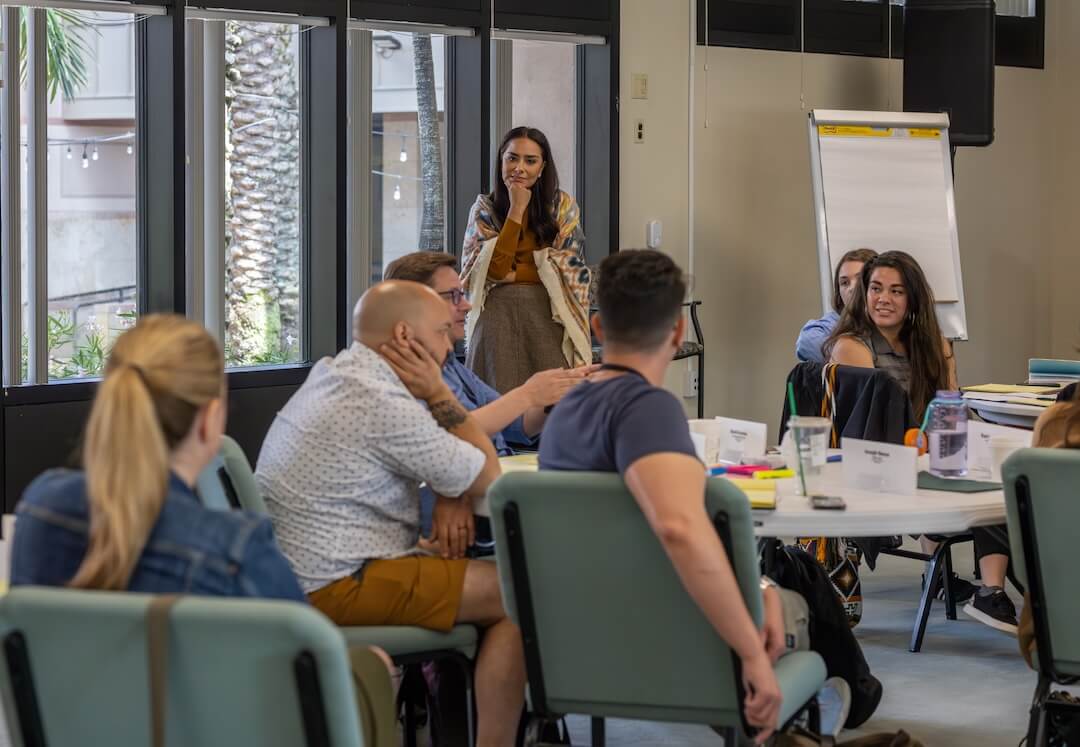Angie Newsome launched Carolina Public Press on a sunny spring day in 2011. She doesn’t remember much about that first story she published, but she was working from home and eight months pregnant with her second child.
For years, it was really just her and this vision for a site with local in-depth and investigative journalism for western North Carolina.
In 2014, she hired a donor development assistant. In 2015, she hired a managing editor.
In 2017, Carolina Public Press produced 10 major investigative projects on topics from crime to education to government transparency in addition to regular public interest reporting, according to its annual report. The site partnered with Huffington Post and held a series of community events.
And early this year, Newsome announced the site would go statewide. She’s now hiring a full-time investigative reporter, a development director and a part-time news and community partnership manager.
This is probably obvious by now, but building a local news site doesn’t happen overnight and it takes a lot of work that has nothing to do with journalism. But it does happen.
“It’s been a slow build, and God, she’s carried it almost entirely on her back,” said Jan Schaffer, ombudsman for the Corporation for Public Broadcasting and executive director of J-Lab, which funds entrepreneurship in journalism.
Newsome had lean years, Schaffer said, where she didn’t take a salary.
“But now she’s just knocking it out of the park.”
Last year, Carolina Public Press investigated the state’s adult care homes. (Screen shot, Carolina Public Press)
From Scratch
How do you start a news site from scratch? Newsome took inspiration from the Texas Tribune and ProPublica as she started thinking about launching her own newsroom in 2009 and 2010. And she wondered: Could she do something similar for rural western North Carolina?
Newsome, who’s from North Carolina, previously worked at the Asheville Citizen-Times and was a fellow at Poynter.
As she started planning CPP, she worked with a local small business development group. She spent a year working on a business plan. And she built an advisory committee.
Newsome has been successful, said Rose Hoban, founder of North Carolina Health News, thanks to “sheer determination.”
It’s something anyone who wants to launch and sustain a local news organization has to possess.
“You’re not going to be able to do this if you are not obsessed,” Hoban said. “The hours, the compensation; it’s just not worth it if you’re not obsessed.”
The two founders recently met but have been emailing and Facebook friends for years. Hoban watched as Newsome worked on a project to bake 100 cakes with her children in her free time.
“Some of them were just ridiculously elaborate, like with sparklers in them and multi-tiered and fancy icings.”
It took five or six years to finish, Hoban said.
“I’m like, do you sleep?”

Angie Newsome, far left, at a forum on child welfare. (Submitted photo)
What you don’t know
Those 100 cakes may have been the easier part of the past several years. At least there were recipes. Starting a news organization in 2011 was a from-scratch experience.
Now she thinks there’s some comfort what she didn’t know then. But she got this bit right:
“I think my overall evaluation of starting a news organization was that doing the news, as incredibly difficult as it can be, is almost the easiest thing to do,” she said.
The tough stuff she had to work on was the operational side, the revenue-generating side, finding donors and funders, then building relationships with them.
“I think women have a slower build but a steadier build,” Schaffer said. “It takes them a longer time in part because they’re not in the guys’ network, they’re not necessarily in the funders network.”
Newsome is an example of that, she said, as are Anne Galloway at VTDigger in Vermont and Lorie Hearn at inewsource in California.
Newsome started small and grew CPP slowly, Schaffer said. She took small grants and built them into bigger ones. She built a track record of investigative work. She partnered with public radio stations.
Individual donors now make up about one-third of the site’s revenue, Newsome said; a tiny percent of revenue comes from content-sharing agreements, and the rest from individual foundations, including the Ethics and Excellence in Journalism Foundation, the Community Foundation of Western North Carolina and the Z Smith Reynolds Foundation.
CPP recently got funding from the North Carolina Local News Lab Fund from Democracy Fund (which, disclosure, is a funder of Poynter.) That funding — $100,000 — is going toward helping CPP piloting collaborative investigative projects.
The site is also part of the Table Stakes local newsroom transformation program at the University of North Carolina. (Poynter is also a partner of that program.)
This year, the CPP won seven awards from the North Carolina Press Association in the online division, including first place for general excellence and first place for investigative reporting.
“I don’t understand why all the bigger players in the state aren’t breaking down her doors to partner with her,” Schaffer said. “She’s just nailing it on a lot of fronts.”
Next, Newsome plans to build an endowment to support CPP and build up operational reserves. She has specific goals for the site about the number of investigative journalism projects that go out statewide and benchmarks for reporting on every county. CPP now publishes online three days a week, and she wants to move it to five.
But the challenges ahead, Newsome said, are pretty much the same as when she first got started: making CPP sustainable, building new audiences and reporting that has impact.
“Reach, impact and sustainability,” she said. “I should get it tattooed on my body somewhere. Those are our three goals, always.”







